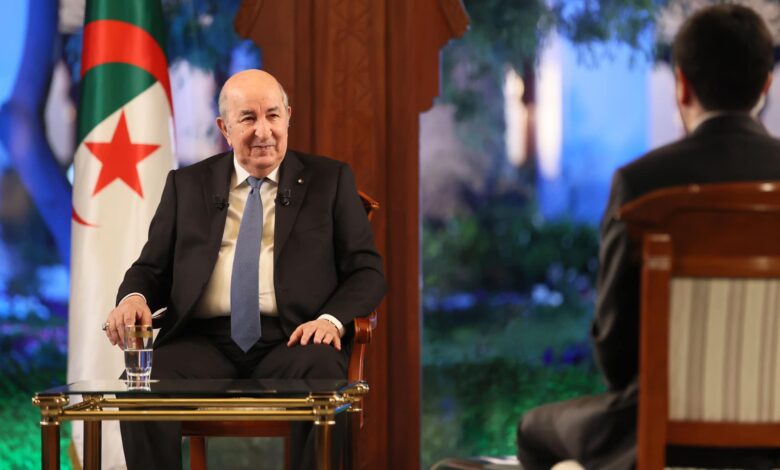Algeria: Between Grand Ambitions and Harsh Economic Realities

In a scene filled with lofty speeches and ambitious promises, Algerian President Abdelmadjid Tebboune has, since 2021, painted a vision of a great Algeria—one brimming with regional strength and global influence.
With oil prices soaring and economic coffers filling with petrodollars, these dreams seemed almost within reach. Yet, as is often the case with unchecked ambitions, the vision collided with reality.
Voices of concern began to rise—not only from political opposition but also from the heart of the economy itself.
Algerian political activist and journalist Saïd Bensedira didn’t hesitate to sound the alarm: “Algeria is on the verge of a suffocating economic crisis.” His words, like warnings carved into the walls of time, foreshadowed tough years ahead for a country that failed to properly manage its most valuable natural gift—oil.
Experts have pointed to the possibility of oil prices falling to $40 per barrel. For an economy almost entirely dependent on hydrocarbons, this would not just be a decrease in revenue but a financial earthquake.
President Tebboune’s economic policies in recent years have been widely criticized as failures. According to experts, these policies were akin to chasing the shadow of clouds—grand plans without deep roots or long-term strategies.
Now, as those shadows begin to fade, Algeria finds itself caught between the aspirations of a people fed on promises of strength and an economic reality balancing on a tightrope over an abyss.
To complicate matters further, former U.S. President Donald Trump added a new dimension to the game with his sharp policies aimed at lowering global oil prices. Trump’s pressure on OPEC cornered Algeria’s ambitions, pulling the rug from beneath them.
The streets, once patient, now contemplate a scene filled with contradictions: vast natural wealth juxtaposed with rising unemployment and a looming economic crisis.
The political system, which tied the country’s fate to hydrocarbon revenues, now stands at a critical crossroads.




